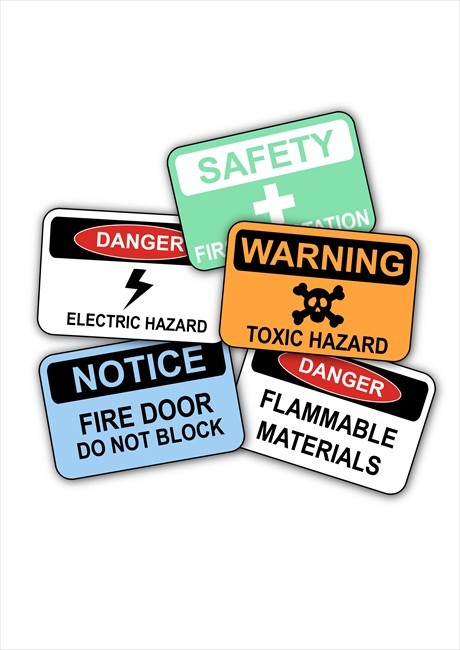The reach of the Occupational Safety and Health Administration (OSHA) extends literally into every work place.
Clearly, employers in the construction, manufacturing and healthcare industries, as well as those whose employees work with or around machinery and toxic chemicals must consciously address OSHA compliance on a daily basis. Many employers outside these obviously regulated industries fail to recognize that with the exception of those operating in a purely business office environment, their employees engage in many daily activities that regularly come under the scrutiny of OSHA audits (or the state agency “TOSHA” in Tennessee). For instance, if you employ a maintenance staff that maintains and repairs electrically powered equipment (water heaters, HVAC systems, hot tubs, etc.), OSHA expects you to have written policies and procedures addressing employee safety training, verification of training, re-training, lockout/tagout procedures, use of safety equipment, etc. Similarly, employers in the hotel, resort and hospitality industries typically have employees in maintenance and housekeeping positions whose work activities involve many areas regularly audited by OSHA, including electrical maintenance and repairs, use of power tools and use of various types of chemical products.
Most small to mid-size employers lack the financial resources to employ a full time Environmental Health and Safety (EHS) Manager to make certain that all work related activities are performed in compliance with OSHA standards. Even when an employer is able to place a competent individual in a full time EHS position, it is often very difficult for that person to stay current with all changes in OSHA laws and regulations, revise and update policies, procedures and training materials, conduct all OSHA required training and still have time to perform other assigned job duties.
One difficulty with having in-house generated OSHA safety plans is that employers sometimes believe they are “finished” once the final draft of the original plan is adopted. Contrary to this belief, OSHA regulations require that employers regularly review and update their safety procedures and training programs to ensure they are current with respect to the employer’s current activity. In addition, when OSHA requires that employees be trained on a particular activity, that training requirement is rarely a one-time event. More often than not, OSHA rules not only require training upon hire, but also periodic re-training and repeated documentation of all training events. Many employers often will provide initial training of a new hire but simply fail to follow through with periodic re-training. These shortcomings are then exposed as a result of an OSHA/TOSHA audit. Unfortunately, when these deficiencies are discovered in the course of an audit, the lesson is often accompanied by significant fines. As I pointed out in another blog [OSHA Fines May Increase by More Than 80% – And No One Heard about It], OSHA fines recently increased by as much as 80%, thereby making non-compliance a very expensive proposition.
I have found the best way for small to mid-size employers to address these concerns is through retention of an outside safety consultant. This is someone who can come into your workplace to assess all activities performed by your employees that are addressed by specific OSHA rules. He then prepares OSHA compliant written policies and procedures addressing workplace safety risks and where necessary, prepares a training program that includes all training documents. Most consultants will also maintain records of when training was provided and who received it. In fact, most are willing to appear at the work place to conduct the training, to ensure it is performed properly.
Unlike an in-house employee who may be assigned the EHS role as part of a larger list of duties, an outside safety consultant can be relied upon to stay current with respect to changes in OSHA laws and regulations and recommend updates to policies, procedures and training materials. Further, if and when an OSHA/TOSHA inspection occurs, the advantages of having such a consultant become immediately apparent. First, assuming you follow your plan, the OSHA investigator should find very few problems. Second, once the investigator sees that you not only have a comprehensive safety plan, but one that is regularly updated, she will most likely regard your facility as a low probability for any significant violations. At that point, the investigation hopefully becomes more perfunctory. Finally, should the investigation evolve to a discussion of violations, your consultant is available to meet with or otherwise discuss the problem with the investigator and either immediately allay concerns, or discuss steps that can be taken to immediately correct noncompliant conditions or procedures.
While there is no guarantee your workplace will ever be the subject of an OSHA/TOSHA audit, there is a substantial difference in the outcome for those who are prepared and those who are not. I can assure you from experience that the savings associated with minimizing OSHA fines can cover the expense an outside consultant for several years.
If you would like to speak to John Lawhorn on this or any other matter, he may be reached at (865) 546-9321.
RELATED POSTS:

John M. Lawhorn of Frantz, McConnell & Seymour, LLP practices extensively in the field of Labor and Employment law and regularly advises clients concerning federal and state laws pertaining to employment discrimination, retaliation and harassment, workplace policies, OSHA/TOSHA compliance, wage and hour compliance, labor/management relations, employment contracts and in many other aspects of the employment field. He regularly represents employer and employee interests in Tennessee State and federal courts on a wide variety of employment related matters.





